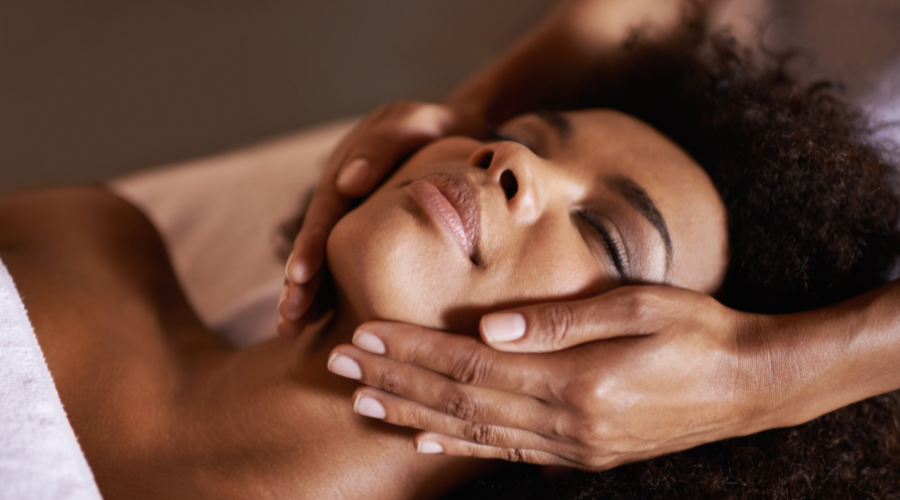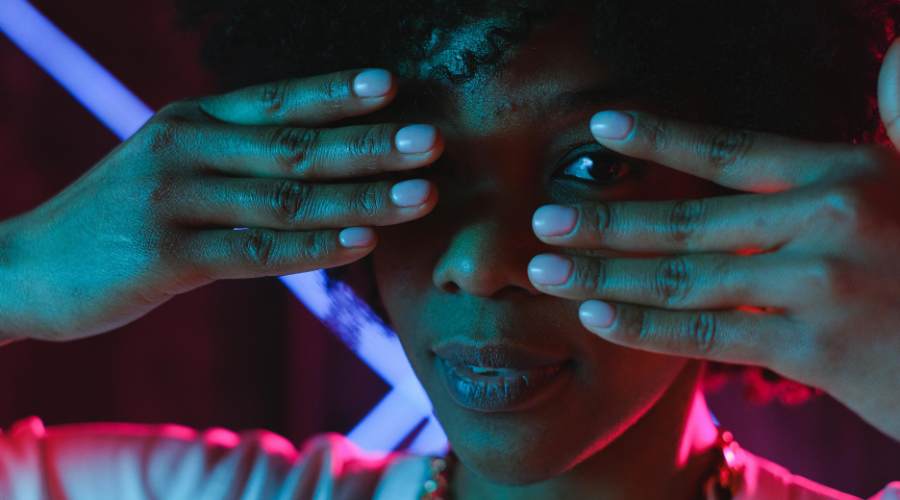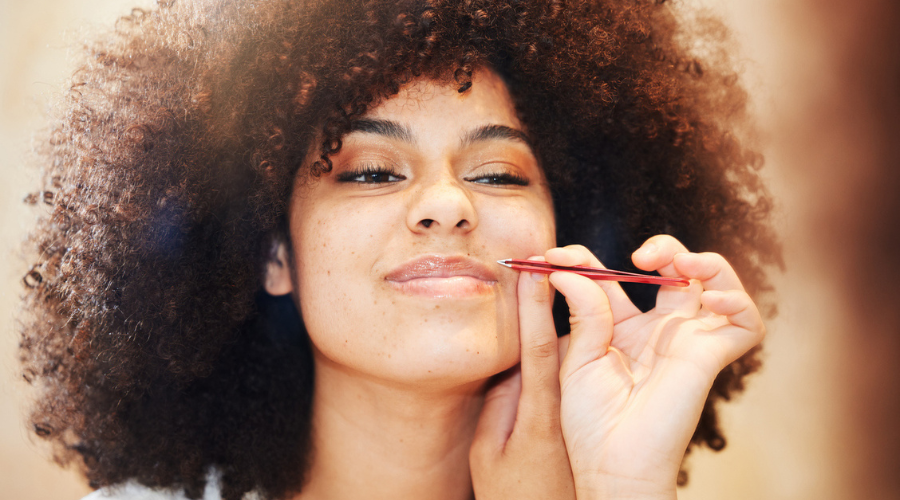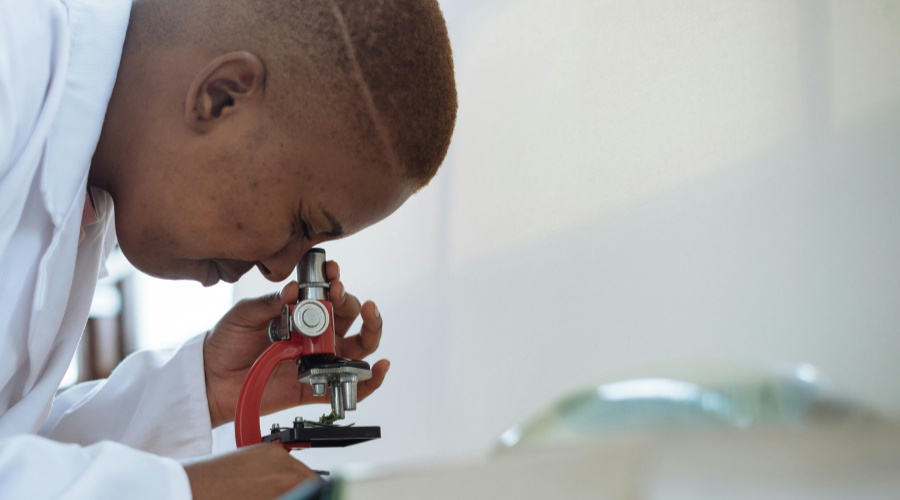Society's narrow beauty standards tell you that women aren't supposed to be hairy. You try to hide it, tweezing and shaving constantly, but the hair keeps growing back. But here's the truth: you're not alone. Plenty of women have hirsutism and struggle with the same feelings.
The hair doesn't define you or make you any less womanly, beautiful, or loveable. This article will provide tips for managing hirsutism physically and emotionally, so you can move past the shame, embrace your unique beauty, and walk through life with confidence. The path to self-love and acceptance starts now.
Understanding Hirsutism: Causes and Symptoms
Hormone imbalance
Hirsutism occurs when there's an excess of androgens like testosterone in your body. For most women, it's caused by polycystic ovary syndrome (PCOS), which creates a hormone imbalance that stimulates hair growth. PCOS is usually diagnosed in your teens or 20s, but hirsutism can appear at any age.
Excess hair growth
The main symptom is coarse, dark hair growth on the face, chest, back, and abdomen. The hair tends to appear in a male-pattern distribution, such as on the upper lip, chin, sideburn area, and chest. The excess hair is usually most bothersome to women, though it is generally not a medical concern.
Additional symptoms
Some women may experience other issues like acne, irregular periods, weight gain, and infertility in addition to excess hair growth. See your doctor right away if you notice these symptoms, as they can indicate there are underlying conditions that require diagnosis and treatment.
Severity varies
Hirsutism can range from mild to severe. For some, it may just be a few stray hairs that can be easily managed. But for others, the excess hair growth can be more extensive, dark, and bothersome. Either way, the condition often causes distress due to societal beauty standards. The good news is there are many treatment options available to help you manage symptoms and feel more confident.
Diagnosis and testing
To determine the underlying cause of your hirsutism, your doctor will review your symptoms and medical history. They may order blood tests to check hormone levels, as well as pelvic ultrasounds or other scans to rule out any abnormalities. An accurate diagnosis is key to developing an effective treatment plan.
The Impact of Hirsutism on Self-Confidence
Hirsutism can have a huge impact on how you see yourself and how confident you feel in your own skin.
Physical Appearance
When you have excess body hair that doesn't match traditional female beauty standards, it's easy to feel like you don't measure up. You may feel unattractive or worry that others will judge you for how you look. But the truth is, beauty comes in all shapes, sizes, and amounts of body hair.
Psychological Effects
In addition to affecting your self-image, hirsutism can also take a psychological toll. You may experience emotions like embarrassment, anxiety, depression or low self-esteem. The constant need to remove hair or hide your body can be stressful and exhausting.
Impact on Relationships and Intimacy
Excessive body hair may make you feel hesitant to start new relationships or be intimate with your partner. You may worry that others will be turned off by how you look or that they will reject you. But the right partner will appreciate you for who you are.
Don't let hirsutism hold you back from living confidently and freely. Focus on surrounding yourself with people who love and support you unconditionally. Learn to embrace self-care and accept yourself as you are. In time, you can overcome the psychological impacts of hirsutism and build true confidence from within.

Tips for Managing Excess Hair Growth
Find the right hair removal method for you
There are many options for removing excess hair, from shaving and waxing to laser hair removal. Try different methods to see what works with your hair type, skin sensitivity, and comfort level. Laser hair removal, though expensive, provides long-lasting results and may be worth the investment for some. For less permanent solutions, waxing removes hair for 4 to 6 weeks, while shaving requires frequent upkeep but is a quick, inexpensive option.
Focus on self-care
Managing unwanted hair growth can take an emotional toll. Make time for self-care like exercising, journaling, or talking to a therapist. Connecting with others dealing with similar issues can help reduce feelings of isolation. Remember that you are so much more than societal beauty standards. Your worth isn’t defined by how much or how little body hair you have.
See a doctor if needed
If excess hair growth is impacting your quality of life, talk to your doctor. Conditions like polycystic ovary syndrome (PCOS) or adrenal gland disorders may contribute to hirsutism and require treatment. Your doctor may check for any underlying hormonal imbalances and may prescribe medication like birth control pills, anti-androgens, or insulin sensitizers which can help slow or prevent hair growth. They can also refer you to counseling or support groups.
Learn hair removal best practices
If shaving, exfoliate skin and use a clean razor. Shave in the direction of hair growth using a moisturizing shave gel. For waxing, allow hair to grow to 1⁄4 inch. Exfoliate the area, then apply baby powder to absorb moisture. See an esthetician for professional waxing. For laser hair removal, avoid sun exposure and tanning beds for 2 weeks before and after treatments. Shave the area before your first session and avoid plucking or waxing which can interfere with the laser targeting hair follicles.
Following these self-care tips and best practices for hair removal can help you feel more confident from the inside out. Focus on surrounding yourself with a strong support system, and try not to let arbitrary societal standards define your self-worth. You've got this!

Finding Your Inner Strength and Beauty
Accept Yourself First
The first step to overcoming hirsutism is learning to accept yourself as you are. This is easier said than done, but focusing on self-love and surrounding yourself with supportive people can help shift your mindset. Try daily affirmations like “I am enough” and “My worth isn’t defined by how much hair I have.” Over time, these messages will start to sink in.
Don't Compare Yourself to Others
It's natural to compare ourselves to societal beauty standards and the curated images of influencers on social media. But the truth is, most of the time those images are unrealistic and unattainable. Focus instead on being your personal best and embracing what makes you uniquely you. Every woman’s body is different, and there is no “normal” amount of body hair.
Play up Your Best Features
Rather than obsessing over the features you can’t change, emphasize the attributes you love. Do you have striking eyes? Gorgeous hair? A dazzling smile? Play them up with makeup or accessories. When you feel good about how you look, excess body hair won’t seem as bothersome.
Connect with a Support Group
Speaking with others who share your experience can help alleviate feelings of isolation and boost your confidence. Look for online communities and support groups for women with hirsutism. There you’ll find empathy, advice, and encouragement. You may even make some new friends along the way.
Learning to overcome insecurities and love yourself as you are is a journey. Be gentle with yourself and celebrate small wins and milestones along the way. Focus on surrounding yourself with positivity and know that you are not alone. With time and practice, you will get better at silencing your inner critic and embracing all that makes you, you.

Learning to Love Yourself Inside and Out
At the end of the day, learning to accept and love yourself is one of the most important steps in overcoming hirsutism. Focus on your inner qualities and strengths rather than just your physical appearance.
Appreciate Yourself
Make a list of things you like about yourself that have nothing to do with how you look. Are you funny? Kind? Hardworking? Talented? Smart? Focus on developing your interests and skills in areas that boost your confidence from the inside out. Pursue hobbies and activities that make you feel joyful and fulfilled.
Practice Self-Care
Take good care of yourself by maintaining a healthy diet, exercising, reducing stress, and avoiding unhealthy habits. Getting enough sleep and limiting alcohol or caffeine intake can help reduce excess hair growth over time. Yoga or meditation are great ways to relax and release negative emotions.
Seek Counseling (If Needed)
Speaking to a counselor or therapist can help you work through feelings of anxiety, depression or low self-esteem related to hirsutism. Talking to others who share your experience can help you feel less alone and gain perspective. Online support groups and communities are available if in-person counseling isn't an option.
Learn to Accept What You Can't Change
While there are treatments to help reduce excess hair, hirsutism is a chronic condition and some level of increased body hair may persist. Try not to beat yourself up over things outside of your control. Practice self-acceptance and remember that hair does not define you or make you any less feminine or beautiful. Your worth goes far beyond physical appearance.
With time and conscious effort, you can overcome negative views of yourself, embrace self-love, and find true confidence from within. Focus on surrounding yourself with people who appreciate you for who you are - and make sure you're one of them! Loving yourself is a journey, so be patient and kind with yourself along the way.
Hirsutism can feel like an unfair struggle, but remember that you are so much more than your hair. Focus on self-care, finding supportive communities, and celebrating what makes you uniquely you. While hirsutism may feel isolating, you don't have to go through this alone. There are resources to help you manage symptoms, and people who will love you as you are. The most important relationship is the one with yourself. You deserve to feel confident and comfortable in your own skin, hirsute sisters. This is your life - live it boldly!



